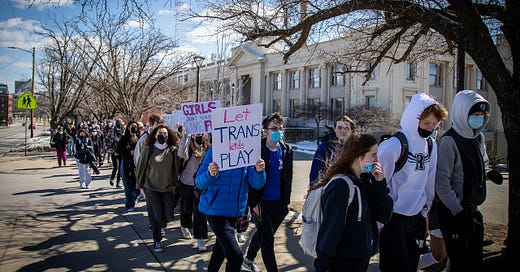You’ve met Hannah Leffingwell here before: Hannah is finishing a French Studies and History dissertation at New York University and taught at The New School’s Eugene Lang College this semester. She has published here at Public Seminar and in The Chronicle of Higher Education. Today, Hannah takes on anti-trans legislation and its effects on young people …
Keep reading with a 7-day free trial
Subscribe to Political Junkie to keep reading this post and get 7 days of free access to the full post archives.




